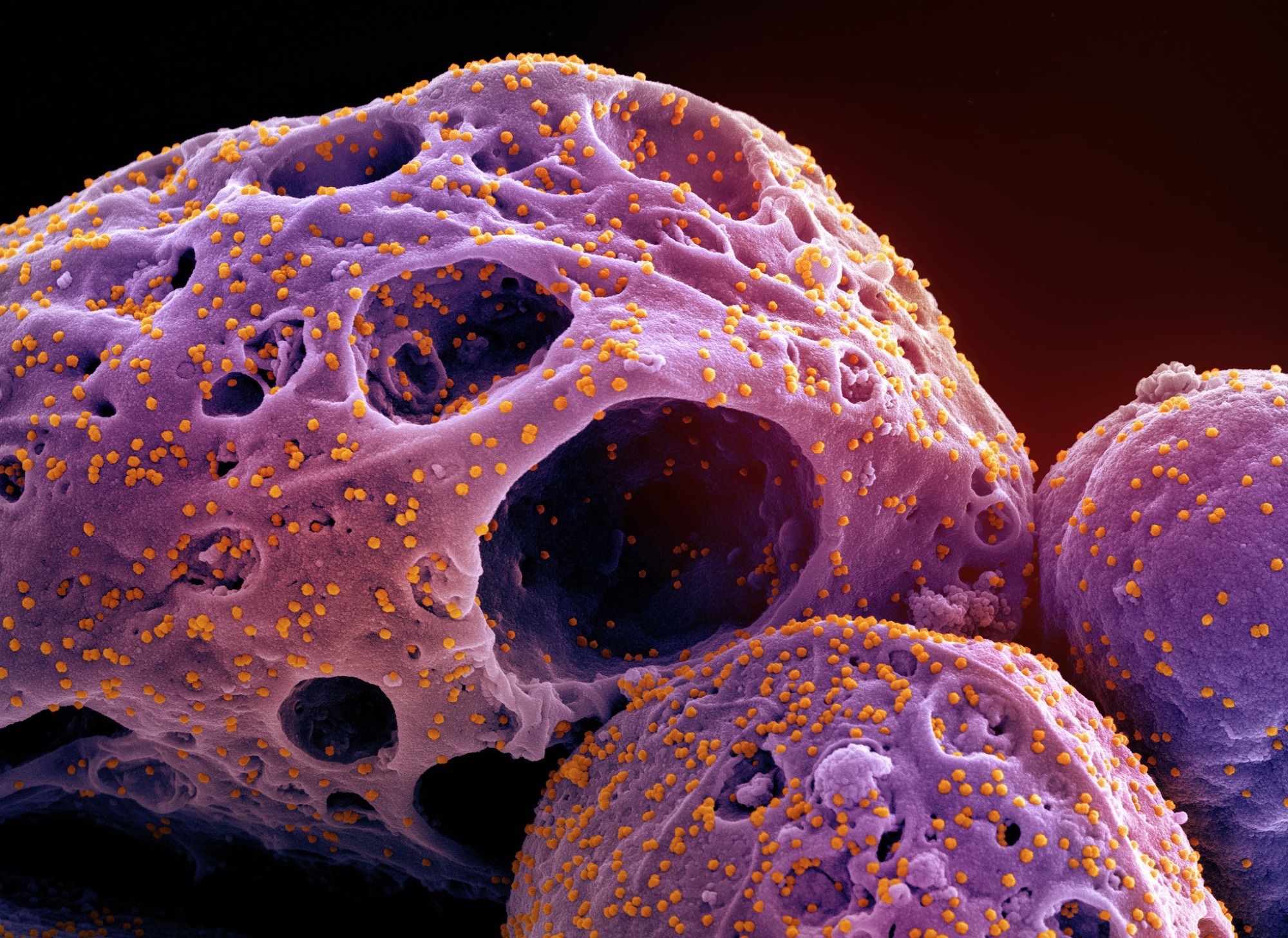In a recent study posted to the bioRxiv* server, researchers at Emory University, Stanford University, and the National Institute of Allergy and Infectious Diseases evaluated whether bivalent coronavirus disease 2019 (COVID-19) boosters conferred protection against new Omicron subvariants.
 Study: mRNA bivalent booster enhances neutralization against BA.2.75.2 and BQ.1.1. Image Credit: NIAID
Study: mRNA bivalent booster enhances neutralization against BA.2.75.2 and BQ.1.1. Image Credit: NIAID

 This news article was a review of a preliminary scientific report that had not undergone peer-review at the time of publication. Since its initial publication, the scientific report has now been peer reviewed and accepted for publication in a Scientific Journal. Links to the preliminary and peer-reviewed reports are available in the Sources section at the bottom of this article. View Sources
This news article was a review of a preliminary scientific report that had not undergone peer-review at the time of publication. Since its initial publication, the scientific report has now been peer reviewed and accepted for publication in a Scientific Journal. Links to the preliminary and peer-reviewed reports are available in the Sources section at the bottom of this article. View Sources
Background
Two new subvariants of severe acute respiratory syndrome coronavirus-2 (SARS-CoV-2) Omicron, BA.2.75.2 and BQ.1.1, share the R346T mutation. It is of particular concern because it substantially reduces the efficacy of bivalent COVID-19 messenger ribonucleic acid (mRNA) boosters. These novel booster vaccines have been introduced recently in the US post the emergence of highly mutated Omicron VOC. They use the ancestral and the Omicron BA.5 spike (S) as immunogens.
However, after their authorization and uptake, more Omicron subvariants have been identified with mutations in the receptor binding domain (RBD) that confer them with the potential to escape vaccine sera. In fact, the R346T mutation, which has arisen in many Omicron subvariants, confers them with the potential to escape vaccine-elicited and approved monoclonal antibodies.
About the study
The present study evaluated serum samples from vaccine booster recipients divided into three cohorts. The first, second, and third study cohorts comprised one monovalent booster, two monovalent boosters, and bivalent booster recipients. The team collected serum samples from seven to 28 days, 70 to 100 days, and 16 to 42 days after booster vaccinations from these three cohorts.
They used an in vitro live-virus focus neutralization test (FRNT) assay for quantifying neutralizing antibody response among these three cohorts. More specifically, they compared FRNT50 geometric mean titers (GMT) of Omicron subvariants, including BA.1, BA.5, BA.2.75.2, and BQ.1.1. against the wild-type SARS-CoV-2 strain. For samples with a low limit of detection (LoD) of 1:20, the researchers assigned an arbitrary FRNT50 of 10.
Study findings and conclusion
Individuals in the study cohorts that received one or two monovalent boosters exhibited much-reduced FRNT titers against Omicron subvariants. The effect was most profound against BA.2.75.2 and BQ.1.1, which have the R346T mutation. On the contrary, BA.5-containing bivalent booster recipients exhibited good neutralizing activity against all Omicron subvariants.
In the monovalent booster cohort, the FRNT50 GMTs for WT strain, BA.1, BA.5, BA.2.75.2, and BQ.1.1. were 758, 60, 50, 23, and 19, respectively. For the two monovalent booster cohorts, the FRNT50 GMTs were 1812, 205, 142, 65, and 53 for WT strain, BA.1, BA.5, BA.2.75.2, and BQ.1.1, respectively. Compared to WT, the overall reduction in neutralization titers varied for different Omicron subvariants. It decreased from nine to 15 and 28 to 39-fold for BA.1 and BA.5, and BA.2.75.2 and BQ.1.1., respectively.
Likewise, relative to the WT strain, the authors observed a reduction in neutralization titers of four-fold against BA.1 and BA.5 and 11- and 21-fold against BA.2.75.2 and BQ.1.1, respectively, in the bivalent booster cohort. The BA.5-containing bivalent booster recipients neutralized all Omicron subvariants more effectively. This observation was consistent with findings in individuals with breakthrough Omicron infections. They also showed broadened neutralizing activity against other Omicron subvariants.
The study results suggested that the bivalent mRNA booster vaccine broadened humoral immunity against the Omicron subvariants. Indeed, there is a substantial serological benefit of bivalent booster immunizations.

 This news article was a review of a preliminary scientific report that had not undergone peer-review at the time of publication. Since its initial publication, the scientific report has now been peer reviewed and accepted for publication in a Scientific Journal. Links to the preliminary and peer-reviewed reports are available in the Sources section at the bottom of this article. View Sources
This news article was a review of a preliminary scientific report that had not undergone peer-review at the time of publication. Since its initial publication, the scientific report has now been peer reviewed and accepted for publication in a Scientific Journal. Links to the preliminary and peer-reviewed reports are available in the Sources section at the bottom of this article. View Sources
Journal references:
- Preliminary scientific report.
mRNA bivalent booster enhances neutralization against BA.2.75.2 and BQ.1.1, Meredith E Davis-Gardner, Lilin Lai, Bushra Wali, Hady Samaha, Daniel Solis, Matthew Lee, Andrea Porter-Morrison, Ian Thomas Hentenaar, Fumiko Yamamoto, Sucheta Godbole, Daniel C Douek, Frances Eun-Hyung Lee, Nadine Rouphael, Alberto Moreno, Benjamin A Pinsky, Mehul S Suthar, bioRxiv pre-print 2022, DOI: https://doi.org/10.1101/2022.10.31.514636, https://www.biorxiv.org/content/10.1101/2022.10.31.514636v1
- Peer reviewed and published scientific report.
Davis-Gardner, Meredith E., Lilin Lai, Bushra Wali, Hady Samaha, Daniel Solis, Matthew Lee, Andrea Porter-Morrison, et al. 2022. “Neutralization against BA.2.75.2, BQ.1.1, and XBB from MRNA Bivalent Booster.” New England Journal of Medicine, December. https://doi.org/10.1056/nejmc2214293. https://www.nejm.org/doi/10.1056/NEJMc2214293.